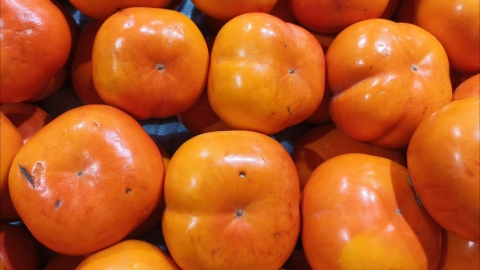Can durian and persimmon be eaten together?
Generally speaking, durian can usually be consumed together with persimmon, but it should be eaten in moderation. The detailed explanation is as follows:

Durian contains a large amount of sugar, as well as protein, fat, vitamin C, B-complex vitamins, minerals, and other nutrients. Among them, vitamin C has antioxidant properties and can promote collagen synthesis. Potassium helps maintain normal heart function and stable blood pressure. Persimmons contain substantial carbohydrates, vitamins, carotene, tannic acid, and pectin. Vitamins contribute to eye health, while pectin promotes intestinal motility. The nutritional components of these two fruits generally do not cause harmful reactions when consumed together, allowing the body to obtain more diverse nutrients.
However, moderation is necessary when consuming them. Both durian and persimmon have high sugar content; excessive consumption may lead to elevated blood sugar levels. This is especially important for individuals with diabetes, who should control their intake to avoid affecting blood sugar stability. Additionally, excessive sugar intake may lead to obesity and chronic diseases such as cardiovascular disorders.
When the stomach is empty, it is not advisable to eat persimmon, as persimmon contains significant amounts of shibuol, tannin, and tannin red. These substances may precipitate upon contact with gastric acid, leading to the formation of gastric bezoars, which can cause symptoms such as abdominal distension, stomach pain, and vomiting.










